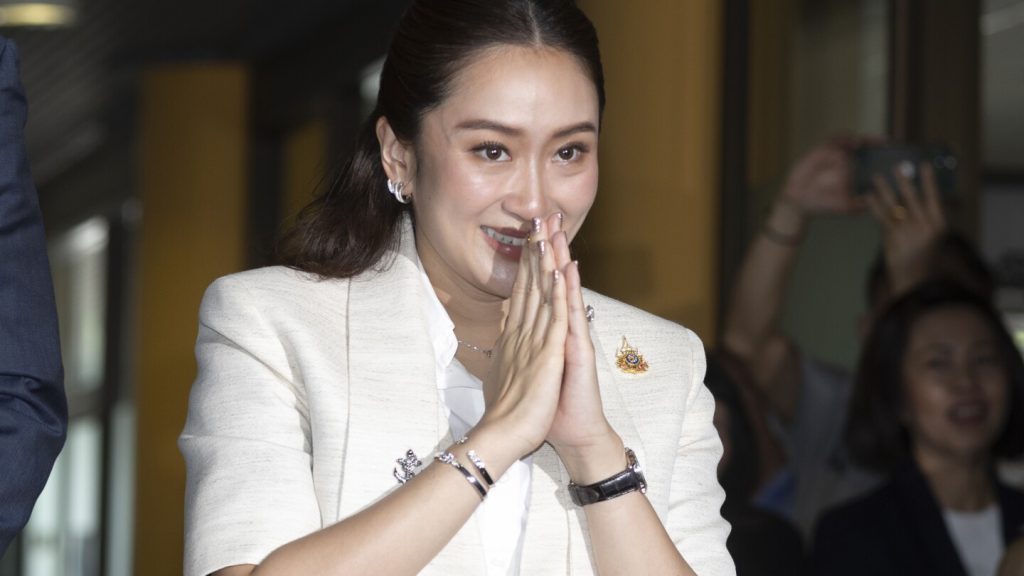Thailand’s Parliament made history by electing Paetongtarn Shinawatra, the youngest daughter of former leader Thaksin Shinawatra, as the new prime minister. Paetongtarn, 37, becomes Thailand’s third leader from the Shinawatra family and the second female prime minister. She is the leader of the ruling Pheu Thai party but was not an elected lawmaker. The Constitutional Court had recently removed the last prime minister over an ethics violation, paving the way for Paetongtarn’s nomination and eventual election.
The Shinawatra family has a strong political legacy in Thailand, with Thaksin being a popular but divisive figure who was ousted by a military coup in 2006. Paetongtarn’s nomination reflects her family’s influence and the ongoing support for the Shinawatra political dynasty. While she has emphasized her independence from her father, Thaksin’s continued involvement in the party poses challenges for her leadership. Despite this, Paetongtarn’s election signals a new chapter in Thai politics and the continuation of the Shinawatra legacy.
The recent political developments in Thailand, including the removal of Prime Minister Srettha Thavisin over an ethics violation, have highlighted the instability in the country’s political landscape. The dissolution of the progressive Move Forward party and the formation of a new coalition government led by Pheu Thai have set the stage for a power shift within the ruling party. With Paetongtarn at the helm, there is a potential for unity within the coalition government and a clear chain of command, given her direct connection to her powerful father, Thaksin.
The changing dynamics in Thai politics also involve the role of the Senate in vetting prime ministerial candidates. With the expiration of the Senate’s special power to veto candidates, the focus has shifted to the lower house, where Paetongtarn’s coalition holds a majority. This shift in power dynamics could lead to a more stable government under Paetongtarn’s leadership, with a focus on reconciliation and unity among the major political parties. The goal remains to keep the political game going and exclude reformist parties from gaining power.
The ongoing political developments also highlight the delicate balance between traditional political forces and emerging reformist movements in Thailand. The exclusion of the Move Forward party and the ban on its prime ministerial candidate reflect a broader effort to maintain the status quo and prevent major political changes. However, the appointment of Paetongtarn as prime minister brings a new perspective to Thai politics, with the potential for a more inclusive and unified government under her leadership. The future of Thailand’s political landscape remains uncertain, but Paetongtarn’s election marks a significant moment in the country’s history.
As Thailand prepares for a new chapter in its political history with the election of Paetongtarn Shinawatra as the prime minister, the country faces both challenges and opportunities. The legacy of the Shinawatra family, the influence of traditional political forces, and the desire for unity and stability all play a role in shaping the new government. With Paetongtarn at the helm, there is hope for a more cohesive and forward-looking administration that can address the country’s pressing issues and move towards a more inclusive political landscape. Time will tell how Paetongtarn’s leadership will shape Thailand’s future and whether it will bring about positive change for the country and its people.


